2013-2014 MEMS News in Medieval and Early Modern Studies
Mourning the Loss of Darryl James Gless (1945–2014)
The University community lost an exceptional scholar, teacher, mentor, administrator, and colleague on June 10 when Darryl Gless passed away. The Program in Medieval and Early Modern Studies thrived during his years as program director.
The Raleigh News & Observer honored his legacy in a profile on July 13. Read it here.
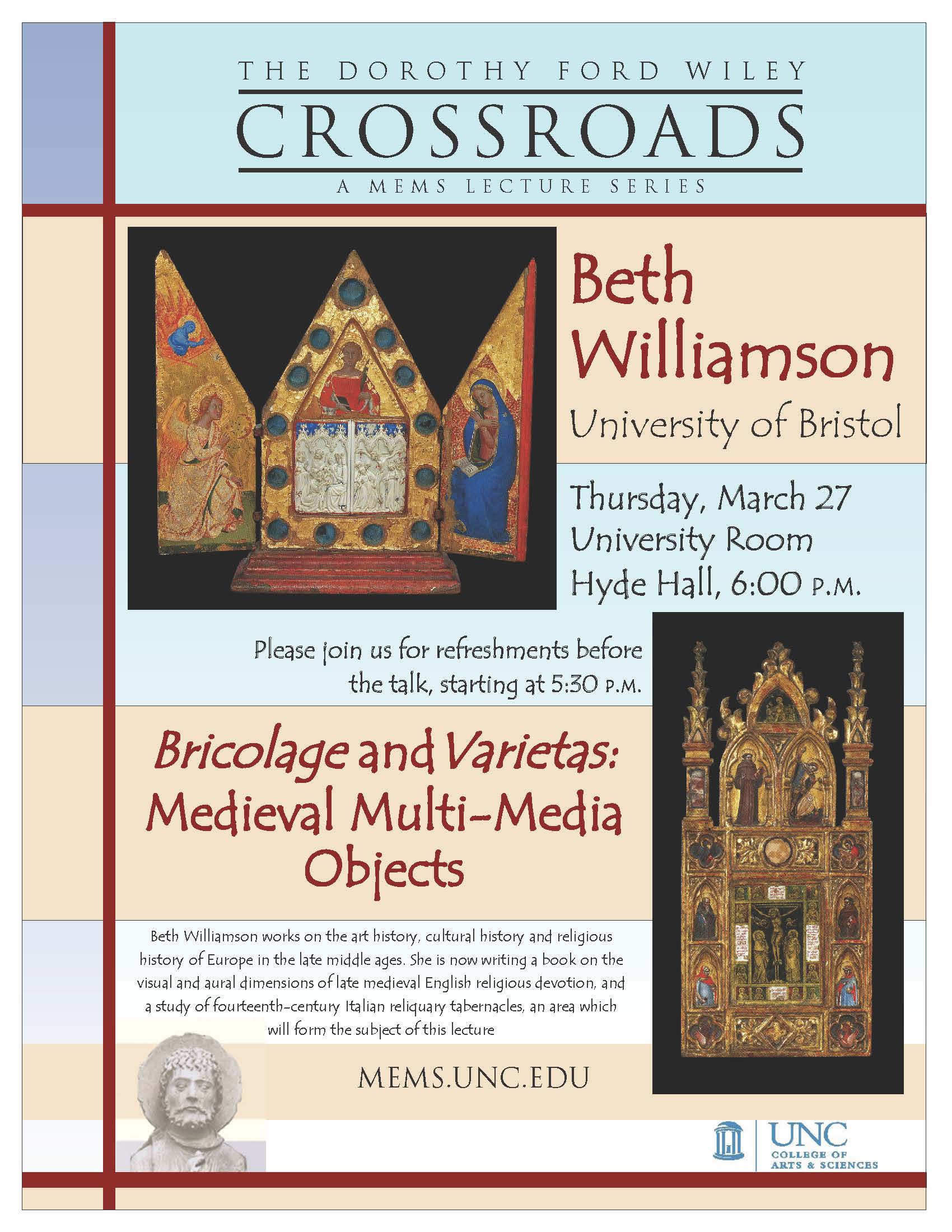 Beth Williamson came to Chapel Hill for the Spring 2014 MEMS Dorothy Ford Wiley Crossroads Lecture, a stimulating discussion of “Bricolage and Varietas: Medieval Multi-Media Objects.”
Beth Williamson came to Chapel Hill for the Spring 2014 MEMS Dorothy Ford Wiley Crossroads Lecture, a stimulating discussion of “Bricolage and Varietas: Medieval Multi-Media Objects.”
Literary and Visual Ralegh (Manchester University Press, 2013)
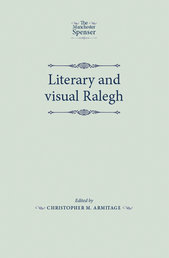 Christopher Armitage (English, early modern) edited this wide-ranging collection of essays on Ralegh’s diversified career and achievements. Some of the essays shed light on less familiar facets such as Ralegh as a father and as he is represented in paintings, statues, and in movies; others re-examine him as poet, historian, as a controversial figure in Ireland during Elizabeth’s reign, and look at his complex relationship with and patronage of Edmund Spenser. A recurrent topic is the Hatfield Manuscript in Ralegh’s handwriting, which contains his long, unfinished poem ‘The Ocean to Cynthia’, usually considered a lament about his rejection by Queen Elizabeth after she learned of his secret marriage to one of her ladies-in-waiting. The book is appropriate for students of Elizabethan-Jacobean history and literature.
Christopher Armitage (English, early modern) edited this wide-ranging collection of essays on Ralegh’s diversified career and achievements. Some of the essays shed light on less familiar facets such as Ralegh as a father and as he is represented in paintings, statues, and in movies; others re-examine him as poet, historian, as a controversial figure in Ireland during Elizabeth’s reign, and look at his complex relationship with and patronage of Edmund Spenser. A recurrent topic is the Hatfield Manuscript in Ralegh’s handwriting, which contains his long, unfinished poem ‘The Ocean to Cynthia’, usually considered a lament about his rejection by Queen Elizabeth after she learned of his secret marriage to one of her ladies-in-waiting. The book is appropriate for students of Elizabethan-Jacobean history and literature.
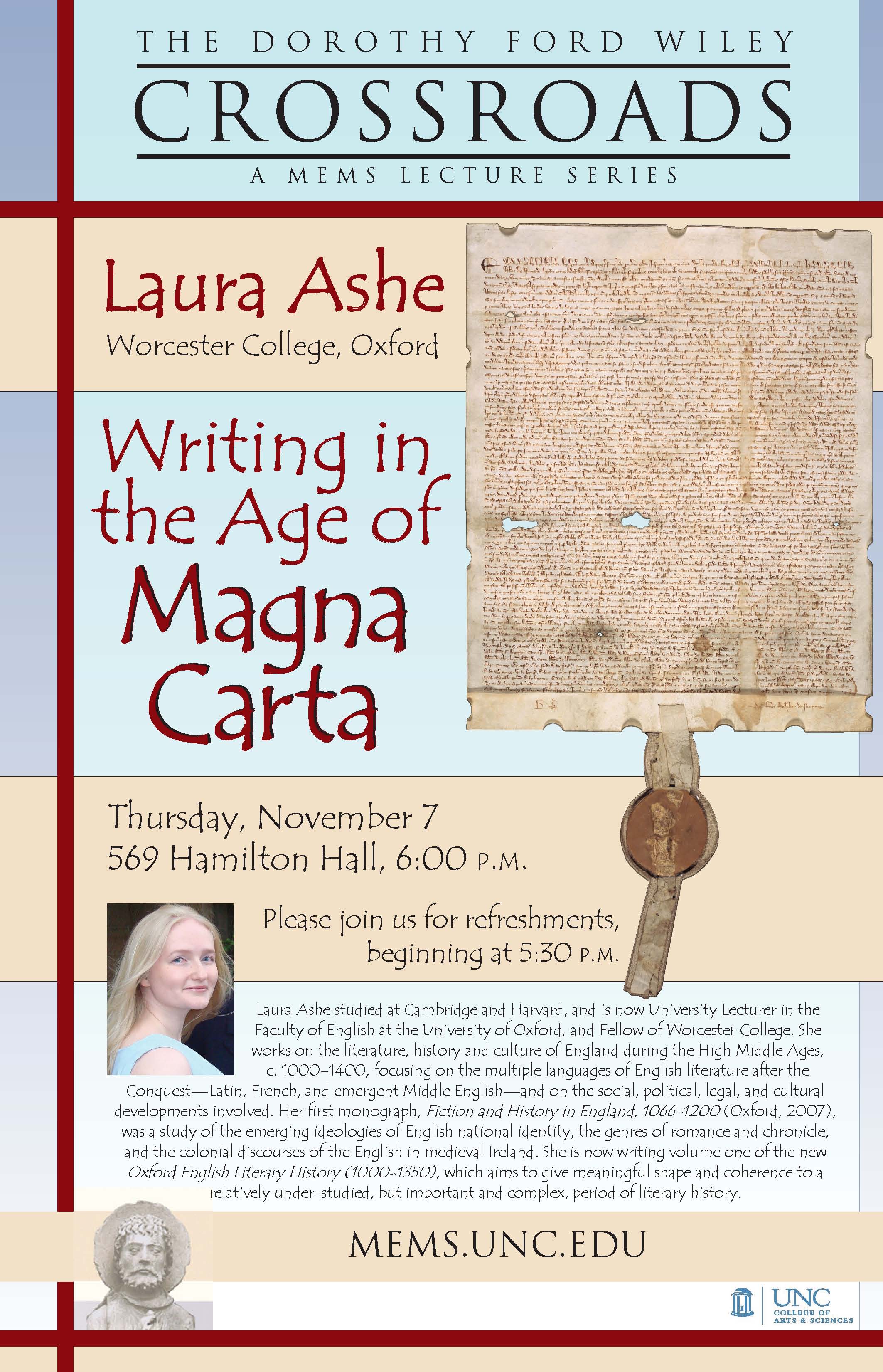 Laura Ashe came to Chapel Hill for the Fall 2013 MEMS Dorothy Ford Wiley Crossroads Lecture, a stimulating discussion of “Writing in the Age of Magna Carta.”
Laura Ashe came to Chapel Hill for the Fall 2013 MEMS Dorothy Ford Wiley Crossroads Lecture, a stimulating discussion of “Writing in the Age of Magna Carta.”
Islamophobia in America (Palgrave Macmillian, 2013)
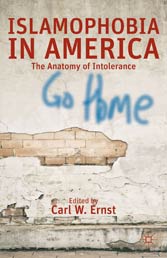 “Carl W. Ernst, Kenan Distinguished Professor of Religious Studies here at UNC-Chapel Hill, edited this collection of five essays by six specialists which provides important insights into virulent anti-Muslim prejudice, relating it to a conflict over American identity during a time of crisis.”
“Carl W. Ernst, Kenan Distinguished Professor of Religious Studies here at UNC-Chapel Hill, edited this collection of five essays by six specialists which provides important insights into virulent anti-Muslim prejudice, relating it to a conflict over American identity during a time of crisis.”
–Carolina Arts & Sciences, Fall 2013
Occult Knowledge, Science, and Gender on the Shakespearean Stage (Cambridge University Press, 2013)
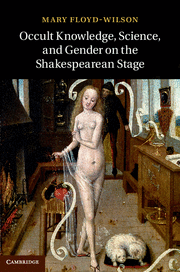 In this ground-breaking study, Mary Floyd-Wilson argues that the early modern English believed their affections and behavior were influenced by hidden sympathies and antipathies that coursed through the natural world. These forces not only produced emotional relationships but they were also levers by which ordinary people supposed they could manipulate nature and produce new knowledge.
In this ground-breaking study, Mary Floyd-Wilson argues that the early modern English believed their affections and behavior were influenced by hidden sympathies and antipathies that coursed through the natural world. These forces not only produced emotional relationships but they were also levers by which ordinary people supposed they could manipulate nature and produce new knowledge.
Ruth von Bernuth Tapped to Head Jewish Studies Center
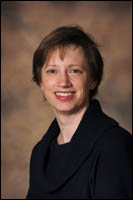 Ruth von Bernuth (Germanic and Slavic Languages and Literatures, early modern) replaces founding director Jonathan Hess, who has completed his third term as director for the Center and he is on research sabbatical this academic year. Read the full story here
Ruth von Bernuth (Germanic and Slavic Languages and Literatures, early modern) replaces founding director Jonathan Hess, who has completed his third term as director for the Center and he is on research sabbatical this academic year. Read the full story here
She received her PhD in medieval and early modern German literature at the Humboldt University, and joined the Carolina faculty in 2008. Her current project focuses on the relationship between texts in Old Yiddish and the German literature of the early modern period, and explores representative works of the major genres of writing in Old Yiddish— biblical texts, heroic epics, early novels and songs. The objective of her research is to uncover the dynamic cultural process that forms Old Yiddish literature and its German parallels.
The Islamic Villa in Early Medieval Iberia: Architecture and Court Culture in Umayyad Córdoba (Ashgate, August 2013)
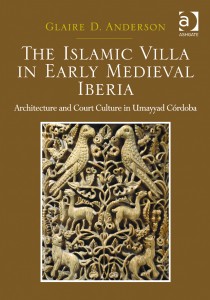 In her most recent book, Glaire Anderson (Art History, medieval) focuses closely on the Córdoban case study, synthesizing the archaeological evidence for the villas that has been unearthed from the 1980s up to 2009, with extant works of Andalusi art and architecture, as well as evidence from the Arabic texts. While the author brings her expertise on medieval Islamic architecture, art, and urbanism to the topic, the book contributes to wider art historical discourse as well: it is also a synthetic project that incorporates material and insights from experts in other fields (agricultural, economic, and social and political history). In this way, it offers a fuller picture of the topic and its relevance to Andalusi architecture and art, and to broader issues of architecture and social history in the caliphal lands and the Mediterranean.
In her most recent book, Glaire Anderson (Art History, medieval) focuses closely on the Córdoban case study, synthesizing the archaeological evidence for the villas that has been unearthed from the 1980s up to 2009, with extant works of Andalusi art and architecture, as well as evidence from the Arabic texts. While the author brings her expertise on medieval Islamic architecture, art, and urbanism to the topic, the book contributes to wider art historical discourse as well: it is also a synthetic project that incorporates material and insights from experts in other fields (agricultural, economic, and social and political history). In this way, it offers a fuller picture of the topic and its relevance to Andalusi architecture and art, and to broader issues of architecture and social history in the caliphal lands and the Mediterranean.
Marcus Bull to Lead MEMS in 2013–2014
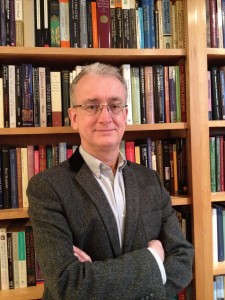 Marcus Bull (History, medieval) has generously agreed to act as interim director while I am on research and study leave next year. Professor Bull came to UNC from the University of Bristol in 2010. In addition to being a leading scholar of medieval aristocratic culture, the crusades, historiography and narratology, he has the energy, commitment, and administrative savvy to shepherd MEMS through its next successful year in 2013–2014. Please join me in welcoming Marcus as the interim director!
Marcus Bull (History, medieval) has generously agreed to act as interim director while I am on research and study leave next year. Professor Bull came to UNC from the University of Bristol in 2010. In addition to being a leading scholar of medieval aristocratic culture, the crusades, historiography and narratology, he has the energy, commitment, and administrative savvy to shepherd MEMS through its next successful year in 2013–2014. Please join me in welcoming Marcus as the interim director!
Jessica Boon (Religious Studies, medieval and early modern) to Teach MEMS Seminar on “Spanish Religions: Medieval Convivencia and Colonial Encounter”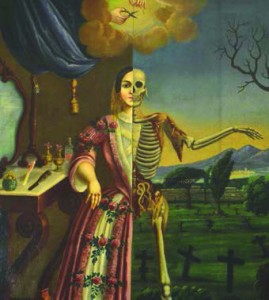
This interdisciplinary course, created with a MEMS Seminar Development Grant, will explore the three monotheisms in medieval Spain, and how the Spanish understanding of religion based on the historical intersection of three religions affected the colonizing endeavor in Mexico, Peru, and the Philippines. Postcolonial theory, critical race theory, and gender theories will be central to the course. It features guest seminar leaders from the disciplines of art history (Cornell), historical anthropology (Duke), history (UNC), as well as Religious Studies (UNC).
If you are interested in the course, please review the course flyer and contact Professor Boon to see the syllabus. Graduate students register for RELI 890, advanced undergraduates for RELI 668.
The Historia Iherosolimitana of Robert the Monk (Boydell & Brewer, 2013)
 Marcus Bull (History, medieval) and Damien Kempf (University of Liverpool) have co-edited a critical edition of this near-contemporary history of the First Crusade (1095–1099). Written near Reims in northeastern France in about 1100, more copies of Robert the Monk’s manuscript have survived than of any other such account. The text was thus in the nature of a medieval “best-seller” that came to dominate how educated Europeans learned about the First Crusade as it faded from memory. This publication represents one of the principal products of a major project in the historiography of the First Crusade, funded by the UK’s Arts and Humanities Research Council with Bull as the principal investigator.
Marcus Bull (History, medieval) and Damien Kempf (University of Liverpool) have co-edited a critical edition of this near-contemporary history of the First Crusade (1095–1099). Written near Reims in northeastern France in about 1100, more copies of Robert the Monk’s manuscript have survived than of any other such account. The text was thus in the nature of a medieval “best-seller” that came to dominate how educated Europeans learned about the First Crusade as it faded from memory. This publication represents one of the principal products of a major project in the historiography of the First Crusade, funded by the UK’s Arts and Humanities Research Council with Bull as the principal investigator.
